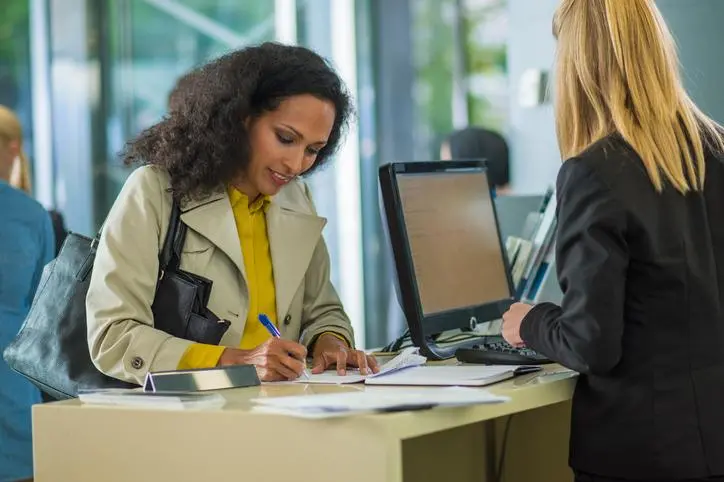PHOTO
The exceptional circumstances inflicted by the Covid-19 pandemic and its repercussions on business offer a favourable opportunity for banks to move more towards ‘green loans’, Bahrain Association of Banks (BAB) said.
Green loans are loans to businesses and projects that consider energy efficiency management, more adoption of renewable energy sources, and reduced waste.
Dr Waheed Al Qassim, CEO of BAB, said the sustainability of the performance and profitability of banks and financial institutions is linked to business sustainability, mobility, and economic growth.
He perceives that it's imperative to evoke the importance of paying more attention to borrowers who provide feasibility studies that take into account the environmental and social perspective, and contribute to implementing the basic needs of the current generations in a way that does not affect the interest and resources for future generations, and focus on economic and social development and environmental preservation.
"The banking sector is keen to contribute to the strategy of sustainable economic development in Bahrain and support the economic, social, and environmental dimensions of this strategy. Banks should finance projects that prioritise sustainable development, including SMEs and micro-projects, and extend the loan portfolio to cover corporate loans and NGOs," Dr Al Qassim added.
He noted that BAB had signed a cooperation agreement with the United Nations Development Programme (UNDP) to stimulate financial sector institutions to maintain resource sustainability and integrate sustainable development goals (SDGs) in the work of banks and financial institutions.
He affirmed the association's keenness to collaborate with the Central Bank of Bahrain to develop legislation that assists this trend and expands the concept of sustainable development in all banks and financial institutions in Bahrain to make the banking sector an excellent example of this global trend.
Dr Ali Ibrahim, Chairperson of the Sustainable Development Committee at BAB, asserted that Covid-19 pandemic represents an opportunity to achieve sustainable economic recovery and that Bahraini banks can represent a substantial part of the current global trend towards increasing sustainable investments, which incorporate environmental and social considerations and governance.
"The opportunity currently exists for banks to explore opportunities for sustainable and green assets, especially as we see that green mortgage percentage globally have progressed significantly. One of the primary reasons for lower defaults is that the owners of green mortgages save on energy costs and are more cash-efficient.
Moreover, the banks should also explore financing solar and energy efficiency of the existing businesses. This will reduce the energy costs of the customers, and they will be able to spend the savings in other productive sectors of the economy." Dr Ibrahim added.
He also emphasised that SMEs' credit lines should remain open so that SMEs can improve their liquidity shortfall. Besides, the banks should continue to back new startups to stimulate new business projects. He added that banks should also invest in and finance circular economy businesses and efficient waste management technologies and others.
"With the growth of sustainable asset projects in Bahrain, banks can issue green bonds and Sukuk, considering that such developments will attract more international investors to pursue opportunities in sustainable and green assets." Dr Ibrahim said, concluding his statement.
As the economies worldwide are opening up, a global consensus is emerging that the economic recovery should be greener and more sustainable. This means that there should be more investments towards the United Nations Sustainable Development Goals (SDGs). Announced in September 2015, the SDGs cover a broad spectrum of social and economic growth areas, and could be used as a roadmap for sustainable economic recovery. Bahrain’s Vision 2030 is aligned with the SDGs, and Bahrain has been one of the early signatories of the SDGs.
Based on the IMF updates of June 2020, the global economy has shrunk by 4.9%. This is lower than the April estimates by IMF, which was 3%. IMF also estimates a more gradual global recovery and now expects 5.4% of global growth in 2021, which is 6.5 percentage points lower that the pre-Covid-19 estimates of January 2020. As reported in the New York Times, the cumulative loss of total output for the global economy in 2020 and 2021 will be more than $12 trillion.
There has been a global increase in the socially responsible and sustainable investments. Investors’ interest has increased for investments that incorporate environmental, social and governance (ESG) considerations. As reported in the Financial Times recently, the majority of ESG funds have outperformed the wider market over the past 10 years, said the BAB statement. – TradeArabia News Service
Copyright 2020 Al Hilal Publishing and Marketing Group Provided by SyndiGate Media Inc. (Syndigate.info).
Disclaimer: The content of this article is syndicated or provided to this website from an external third party provider. We are not responsible for, and do not control, such external websites, entities, applications or media publishers. The body of the text is provided on an “as is” and “as available” basis and has not been edited in any way. Neither we nor our affiliates guarantee the accuracy of or endorse the views or opinions expressed in this article. Read our full disclaimer policy here.





















